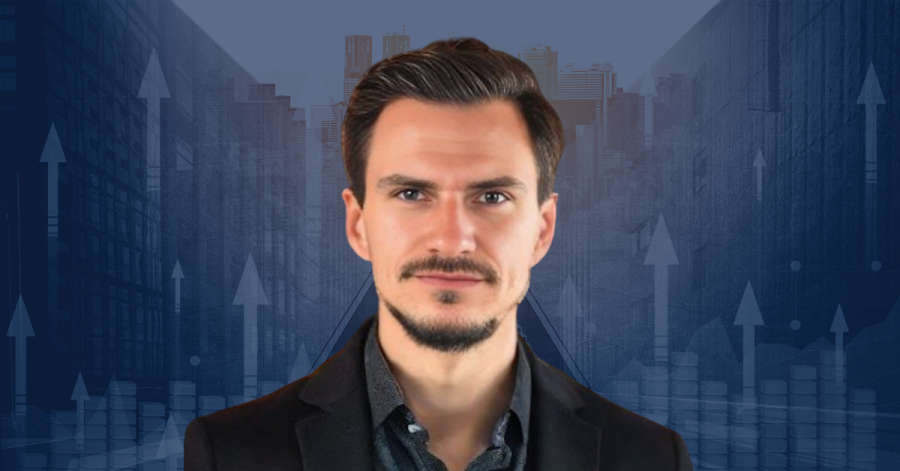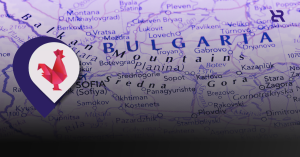Bulgaria’s startup ecosystem is still growing but things have never been better. Currently, the country is ranked at 6th place in Eastern Europe, Bulgaria is home to over 800 startups. The question is, how do we scale from here?
The Recursive caught up with Ognyan Vasilev, founder of Start Up, Bulgaria, to uncover the challenges, and growth opportunities shaping Bulgaria’s ecosystem.
Start Up, Bulgaria! is a national startup conference in Sofia from November 8-10. This is the first edition, providing the opportunity to connect with fellow entrepreneurs, investors, and innovators through a variety of workshops, hackathons, and more than 50 informative sessions.
How would you describe the current state of the Bulgarian startup ecosystem? What are some unique advantages Bulgarian startups have compared to those in more established ecosystems like Western Europe or the US?
Ognyan: When I think about our entrepreneurial community, I primarily consider our financial resources and wealth of knowledge. But an essential element is our spirit of collaboration. We have a thriving entrepreneurial ecosystem that truly values cooperation. People are genuinely eager to support one another, particularly by sharing the insights and experiences they’ve gained over many years; something that isn’t as common in many other societies.
In some cultures, knowledge is seen strictly as a competitive advantage, so it’s rarely shared. Here, however, most entrepreneurs we encounter daily, weekly, or monthly are open about their knowledge and experiences. They’re willing to tell their stories and share insights, which is a powerful strength in our community. While we still have room to grow, I believe we’ve never been in a better place. We have the financial resources, the expertise, and an improving macroeconomic environment to support our growth.
And what would you describe as the main weakness?
For me, the main challenge, or ‘weakness,’ lies in areas we simply haven’t had much experience with. If someone has never had to perform a certain task before, it’s natural they won’t excel at it right away. For example, take mergers and acquisitions; many in our community haven’t had hands-on experience with M&As before, so the idea of doing one successfully can feel daunting. It’s understandable; when we’re not experts in a field, we rely on what we read or hear about it. However, I view these as growth areas rather than weaknesses.
One part of this is cultural. In our country, people tend to be more conservative in their approach, cautious about making promises until they’re certain they can deliver. This contrasts with the more optimistic approach of, say, American culture, where people often speak confidently about future successes even if they’re not yet fully realized. Here, we tend to hold back until we know something is genuinely achievable.
Another part stems from our education and professional training. I studied at the Technical University of Munich, which is renowned for its engineering programs but less so for business, sales, or marketing. Engineers here are excellent at inventing but often end up either working for others or selling their innovations to larger corporations at undervalued rates. There, they emphasize pairing engineers with economists to bridge that gap, and it’s a model that could benefit our community.
We see a lot of potential in our entrepreneurial culture here. While we may have some traditional hesitancies, these can evolve. I’m not suggesting that we justify them, but rather that we work towards overcoming them.
What are the biggest barriers that Bulgarian entrepreneurs face when trying to scale their startups globally, and how can these be addressed?
I have spent six years scaling operations at Salesforce, focusing on regions such as Europe and Africa. A key aspect of scaling is establishing efficient processes and functions. You need to identify and refine these processes to determine what works, whether that involves increasing the number of employees or implementing a structured approach to problem-solving.
In my experience, a successful scaling strategy involves finding what works and gradually expanding by hiring the right people, typically 30 to 60 at a time, to integrate into existing teams. This approach helps maintain company culture while allowing for manageable growth.
How has access to venture capital and funding evolved for Bulgarian startups in recent years?
Regarding access to venture capital, the landscape has changed significantly in Bulgaria over the past few years. This increase in funding sources has created numerous opportunities for startups to pitch their ideas and secure investment. Founders are increasingly aware that their journey often involves tapping into both Eastern and Western European markets, with many aiming for the American market as their ultimate goal.
For instance, it is now easier to register a company in the US or the UK than it was before, which opens doors for startups. At our conferences, we invite numerous international investors to explore the potential in Bulgaria and address any concerns they may have about investing in the region.
Nevertheless, adapting to local needs is crucial for success.
What advice would you give to an international investor or company looking to engage with the Bulgarian startup scene?
I encourage international investors to explore the opportunities in Bulgaria more deeply. As part of the EU, Bulgaria offers a similar investment environment to other European countries. While some outdated perceptions may linger, it’s important to recognize that successful businesses can thrive anywhere. Based on a recent survey we conducted, investors are primarily looking for traction and execution. They want to see evidence that startups are effectively implementing their ideas and generating revenue.
Recently, I received an inquiry from an investor in the Czech Republic about entering the Bulgarian and Romanian markets and the key events in those areas. Events like ours foster collaboration and networking, allowing startups to connect with potential investors and partners. Our mission is to inspire and support entrepreneurs who want to make a meaningful impact.
Additionally, we want to attract foreign talent to our accelerators and incubators by highlighting the advantages of starting a business in Bulgaria, such as a lower cost of living. We also want to transition hobbyists, those who engage in side projects, into serious entrepreneurs. For example, if someone balances a full-time job with a bakery business, we want to encourage them to commit fully to their entrepreneurial pursuits.
What is the main mission or goal you hope to achieve with Start Up, Bulgaria? What sets this conference apart from other startup events in the region?
Our objectives are to encourage collaboration, foster connections, and inspire others to pursue their ambitions. We believe that by sharing stories of success and perseverance, we can motivate others to start their entrepreneurial journeys.
This year, we’ll maintain a hybrid format for our conference, combining in-person and online options to enhance networking opportunities.
What sets our conference apart is our dedication to providing practical skills and knowledge. We have designed an agenda with multiple sessions tailored to entrepreneurs, including workshops led by industry experts. Participants will have the opportunity to work on their business challenges in collaboration with seasoned professionals.
We also plan to feature international guests, including investors and entrepreneurs, to share their insights. We want to learn from those who have navigated similar paths and to integrate their knowledge into our local context. Our aim is to highlight both the success stories and the realities of entrepreneurship in Bulgaria.
While it may be too early to consider expanding our reach beyond Bulgaria, we aspire for our conference to become a leading platform for entrepreneurship in the region. It is just beginning now!








